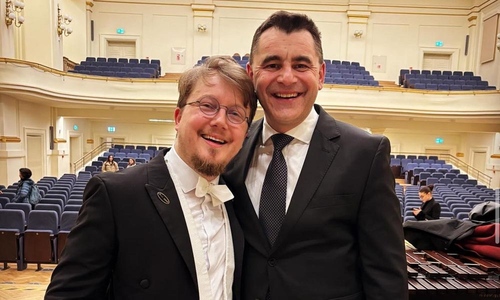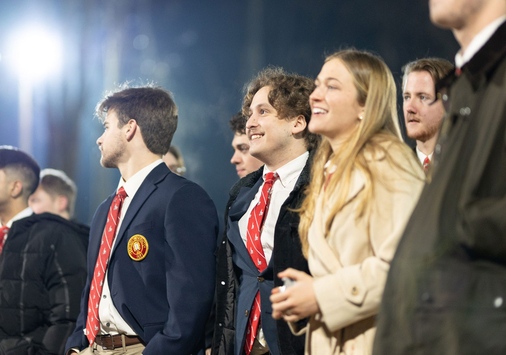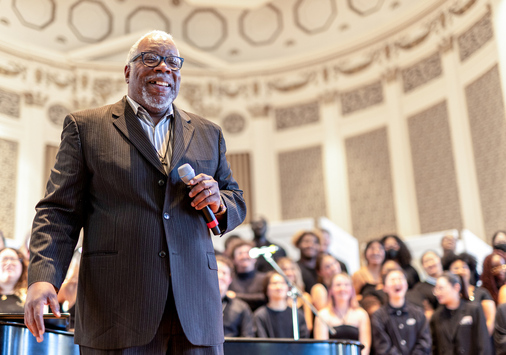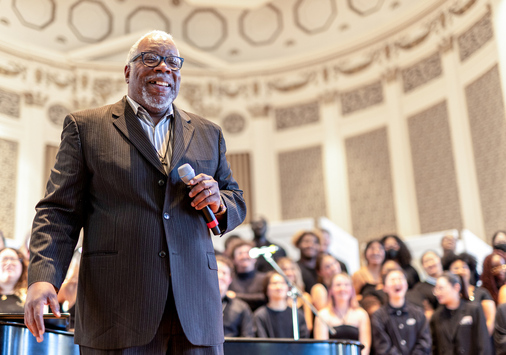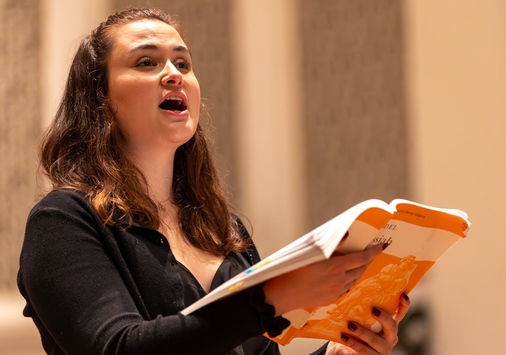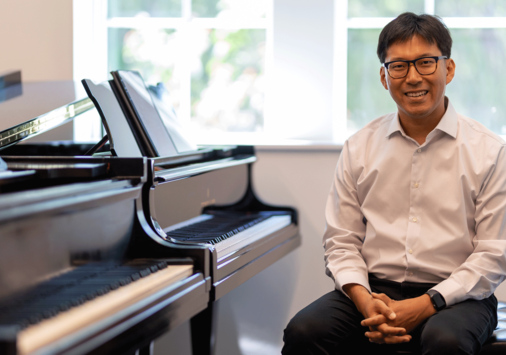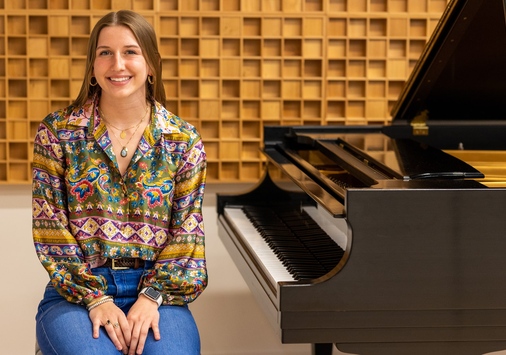Wind-bands have long provided the soundtrack of war, but can they also be a plea for peace? The War is Over, a DU Wind Ensemble concert with guest conductor Jarosław Ignaszak and conductor Chris David Westover-Muñoz, examines anti-war music that includes works by Karel Husa, Phil Ochs, Augusta Read Thomas, and John Prine.
Westover-Muñoz shares how the inspiration for this concert evolved, drawing from various pieces and experiences that shaped the program.
What was the inspiration for this title?
This concert was inspired by The Westerlies’ album This Land, which included a version of Joe Hill’s “The Preacher and the Slave,” which I featured on my recent album “Starvation Army Band Music No. 1.”
I was really struck by the way in which The Westerlies, a classically trained brass quartet, jumped across and blended genres to create an album that really felt cohesive and connected from beginning to end.
I have also been fascinated with Phil Ochs’s music, specifically his song “The War is Over,” mostly because of its depth, but also because he was a Columbus local who studied music just down the street from me at Capital University. As a side note: before he gained worldwide attention as a protest singer, Ochs played saxophone in school bands, and I’m convinced this experience influenced his music.
While traveling in Poland last spring, I reflected on events in the U.S. and on college campuses, particularly the parallels between 2024 and the Vietnam War period. As I was planning this semester’s program, I couldn’t really get away from the idea of somehow engaging with this contemporary moment through its resonance with the past. This is how I landed on the concept for this semester’s program: an anti-war concert that connects music of different styles and eras, while also bringing the wind-band’s militaristic and patriotic legacy into the conversation. And Ochs’ song was really where it all began.
What can the audience expect to hear?
I’m really proud of the program we’ve put together. It contains such a breadth of styles and periods, each engaging with this theme in unique ways.
We open with depictions of patriotism and war: Bagley’s “National Emblem” march and Karel Husa’s “Music for Prague 1968,” after which echoes Augusta Read Thomas’ “Plea for Peace.”
The program then shifts to reflections on the soldier, featuring Grainger’s classic soldier’s tale, “Lord Melbourne,” alongside John Prine’s “Sam Stone,” Andriessen’s “Y después,” and excerpts from Martinů’s “Battlefield Mass.”
The concert closes with Ochs’ and Prine’s Vietnam era reflections on patriotism and a very poignant work by Phil Kline.
How are the students reacting to the works?
The students have really been devouring this music, which is quite challenging both technically and by its sheer volume. It has been really wonderful to see how they’ve responded to this challenge, and I can’t wait to share what they’ve accomplished with our audience.
We’re very excited to welcome several guests to this concert, including Denison music faculty instructors Emily Noël and Adam Schlenker, Schlenker’s American Roots students, and Andrew Hanson ’26.
How did you meet guest conductor Jarosław Ignaszak?
I met Ignaszak in 2019 when I won that year’s Warsaw Wind Ensemble Conducting Competition. We’ve remained friends ever since, meeting in Poland about five times and even in South Korea this past summer.
Ignaszak invited me to conduct his group Orkiestra Wieniawa in 2022 and the Wind Orchestra at the Penderecki Academy of Music this past March, so we’ve really developed a wonderful professional friendship, and I can’t wait for his arrival. He will be on campus for a couple of weeks working with students and on various projects.
We’re also working on several projects together for the future, including a CD that will be recorded at the European Music Center in March 2025. He will host us when the Denison Wind Ensemble travels to Kraków in November 2025.
It is a very special treat to have my dear friend Prof. Ignaszak join me in conducting this program.
The War is Over
7 p.m. Thursday, Nov. 7
Sharon Martin Hall, Eisner Center
Free and open to the public, but tickets are required, available soon.
